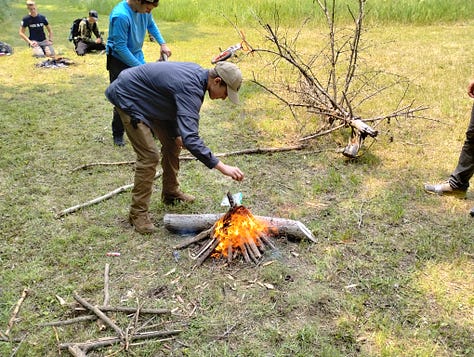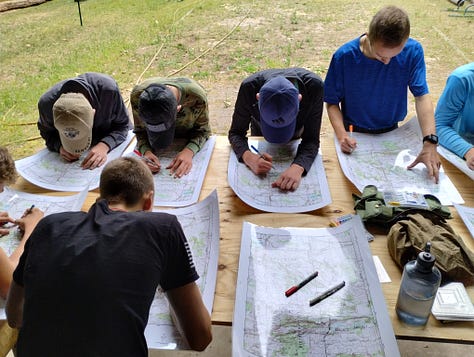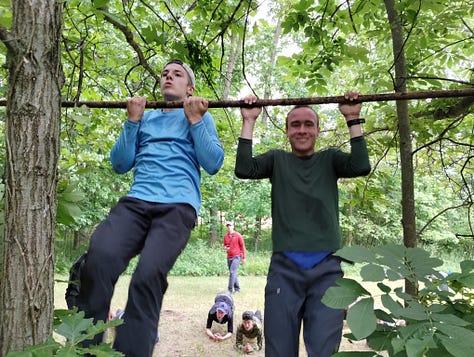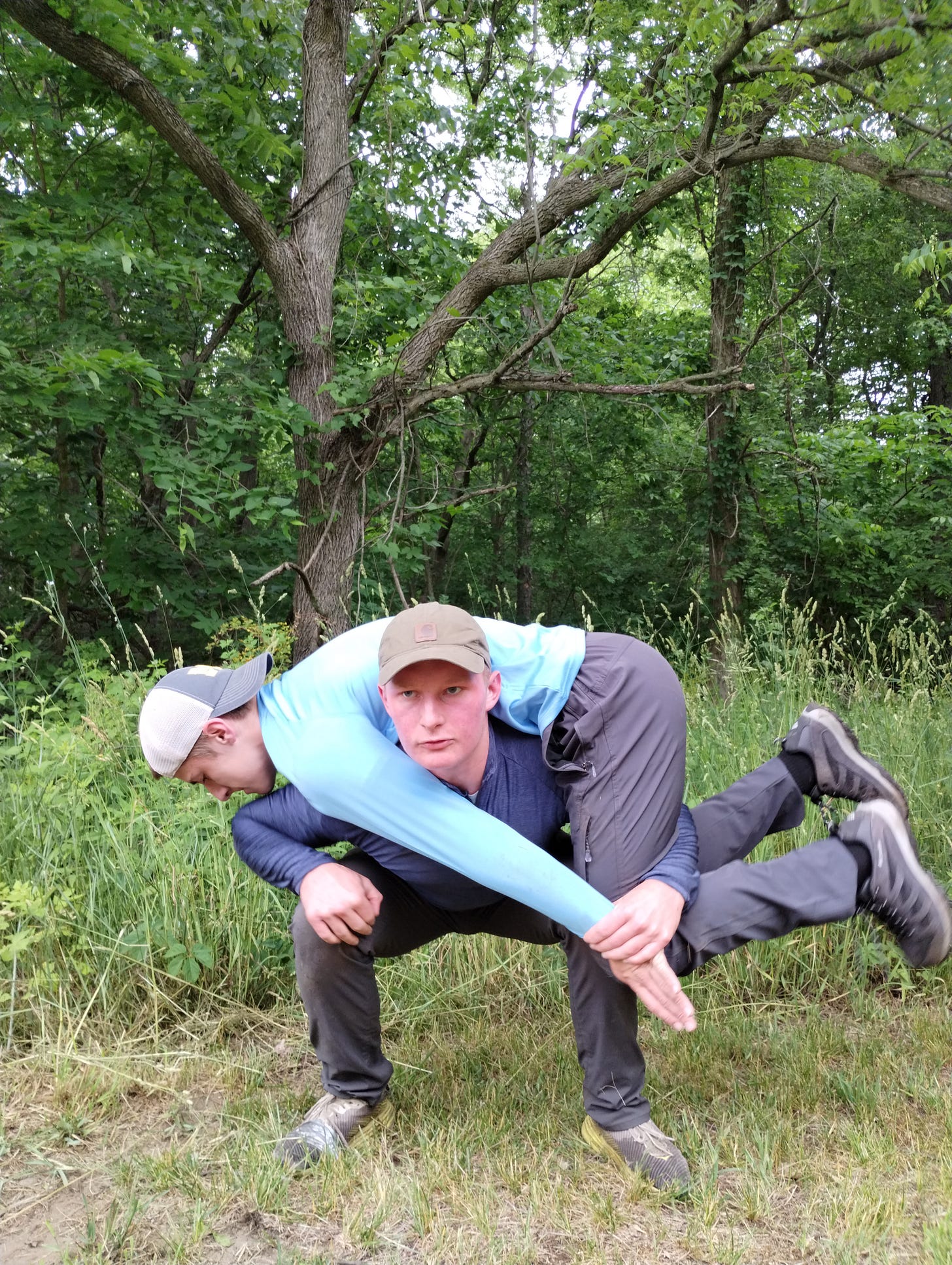Survival Among the Cyborgs
Philosophy, the body, and cyborgs in education today
It has been a fruitful couple of weeks here in Hillsdale, Michigan. Just a few days ago I concluded a Foundation Training Camp for high school boys through my educational program Iliad Athletics and shortly thereafter delivered a couple of talks at the annual Hillsdale College K-12 Summer Conference. Also, I just had a poem, “Kite,” published in the journal Local Culture from the Front Porch Republic.
I’ll share a few vignettes from the Foundation Training Camp in the coming weeks but you’ll be glad to know that Beowulf, Teddy Roosevelt, and Tennyson appeared alongside log drills, land nav, and tourniquets over the course of the unapologetically strenuous camp.



I spoke at Hillsdale’s K-12 Conference about the relation of the body to philosophy in education and want to share a few key points.
Marginalized as it may be in our highly technologized environment, the body is our first contact with the given riches of the real in the natural world. Any education that neglects the body, that neglects the physical for the theoretical, lacks the foundation for cultivating true wisdom.
Ours is an age of machines, virtual reality, and artificial intelligence, and it results in levels of abstraction and alienation from our bodies and from nature that expose us to dangerous intellectual perversions.
We live in an age of neo-docetism, distinguished by a certain hatred of the body. Docetism is from the Greek work dokein which means apparition or phantom. The old Docetists were a stripe of gnostic that denied Jesus had a physical body. They taught that his body was just a representation but not a physical reality—it was an apparition or a phantom. In their minds the body was base, and frankly, gross with its eating drinking and copulating. The Docetists needed the perfect abstraction of ideas.
My purpose is not to dwell on the history of Docetism but suggest that it’s values parallel many of those dominant in the most elite of our institutions today. Nature—and for each individual nature is most present in the form of a body—nature represents a fairly definite boundary. We can cultivate nature, combine elements of it with other things to form new things, mediate it in various ways, but always, nature reacts according to apparently immutable laws that are inscribed in it at a level that we cannot alter. We hate this.
Through a perverse combination of self-hatred and hubris we find ourselves in this abstracted age both with the desire fundamentally to change nature and the belief that we can do so. Our academic institutions cook up a variety of theories in order to escape the strictures imposed by having bodies. The ivory tower seems committed to proliferating these rebellions against the real. Take for example Donna Haraway’s 1985 essay called “A Cyborg Manifesto” published in the Socialist Review, which initiated a delightful new subfield of “capital T theory” called Cyborg Theory. She writes:
“It is certainly true that postmodernist strategies, like my cyborg myth, subvert myriad organic wholes (for example, the poem, the primitive culture, the biological organism). In short, the certainty of what counts as nature – a source of insight and promise of innocence -- is undermined, probably fatally…. Cyborgs are ether, quintessence.” 1
Haraway longs to hasten the demise of nature in order finally to be free of her body and all of the realities it contains. This is self-hatred and a poison that we cannot afford to transmit to our children in school.
Sadly, more often than not, our educational efforts to recover a focus on virtue and human excellence occur in highly abstract, theoretical intellectual environments (like classrooms or on screens) that actually reinforce the dangerous physical and intellectual disintegration that is the hallmark of our age. Our educational efforts need to be grounded in the real.
When we imitate philosophers like Aristotle or Thomas Aquinas in noodling over the gorgeous abstractions they have left us, we often forget that, living, thinking and writing in a pre-industrial revolution world as they did, their intimacy with their bodies and the natural world is far beyond anything we can probably imagine. Reading Plato in a fluffy, imported, polyester chair in a vinyl clad, climate controlled, asphalt shingled machine for living that we call a house is so far removed from the fundamental basis in nature and body that grounded their thought, I suspect we are dangerously ill-equipped to engage meaningfully with their work.
This ill-preparation for philosophy is manifest with a vengeance in contemporary philosophy which is less a love and pursuit of wisdom than an orgy of abstraction and intellectual fetishization. Hence the avalanche of pathogenic ideas from academia. We have to work very hard to overcome our insulation against the real world.
That’s why we do Foundation Training. It’s a simple solution to an overly complex problem. L. M. Sacasas wrote beautifully in his essay “What You Get is the World” of the ample reward for attentiveness contained simply in the world itself. We start with exposing them to the world, then develop their capabilities so that they can be comfortable in it. The rest is up to them.
https://web.archive.org/web/20120214194015/http://www.stanford.edu/dept/HPS/Haraway/CyborgManifesto.html




This caused me to think deeper about the Farmhouse and how that fits in to our budding endeavor...what were the seeds planted over 50 years ago in my case, that are now bearing fruit?